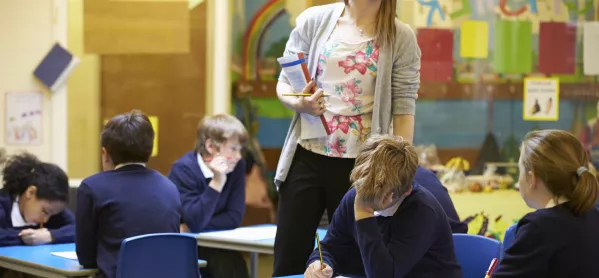‘Why it’s time to accept that Sats are not fit for purpose’

Is there anyone left in education who actually believes in Sats?
I don’t mean whether tests at the end of Year 6 are a good idea or not. I mean the actual results.
Undoubtedly many schools approached last week’s tests with a lightness of touch. Headteachers will have said to their staff and pupils: “These exams don’t define us and are nothing more than a hoop through which we have to jump.” Or something similar.
Schools that achieve this sense of karma are to be congratulated, and their results will be a fairly reliable reflection of achievement. However, this is no longer the norm. Since the inception of Sats in the very late 1980s, the culture of gaming around the tests has developed a life of its own.
It is now standard in many primaries for large chunks of Year 6 to be taken up with practice tests and Sats cramming classes. Teachers obsess about pupils on the level 3-4 threshold. Subjects other than English and maths are squeezed. The end-of-year play now has a cast of Year 5s. PE gets kicked into the long grass. Even science has been sidelined since the Sat in that subject was dropped after the boycott of 2010.
And this is just the schools that are tiptoeing on the right side of the rules. Education abounds with stories of practices that are at best legally dodgy, including teachers coughing when an answer is wrong, pupils being given extra time on papers and one-on-one readers for entire year groups.
One headteacher even told me that he knows of a school where the senior staff use rubber gloves when they’re “clarifying pupils’ answers” before sending scripts off to be marked.
Of course we cannot condone such behaviour (and many stories will be an exaggeration in any case), but it’s worth exploring why it might happen. Headteachers and teachers talk of the sheer severity of the cliff-edge that schools face when the Sats results land. School leaders can be fired for one set of bad numbers. Fully functioning community schools can be ripped apart. Pupils’ lives can be destabilised.
And for what? For league tables that are as flawed as the numbers on which they are built. For Ofsted to prejudge schools. For secondary schools that have so little faith in the results that they put every new cohort through another test-fest.
But league tables are the most important of these, because - whisper this - the genie is out of the bottle. Parents and the public are addicted.
So what to do? If one accepts that these performance tables are here to stay, then it’s sensible to instead base them on numbers that accurately reflect the school. Many would call for tests to be replaced with teacher assessment. For this to work, the system would have to be transparent (unlike Sats), externally held to account, rigorous and trusted. A tough gig, certainly.
The fact is that the educational argument against Sats testing and league tables is lost - politicians and the public have proven time and again that they won’t listen. But the case that they are not fit for purpose can still be made, and made strongly.
The result might just be an honest debate about Sats. It’s about time.
Keep reading for just £1 per month
You've reached your limit of free articles this month. Subscribe for £1 per month for three months and get:
- Unlimited access to all Tes magazine content
- Exclusive subscriber-only stories
- Award-winning email newsletters



